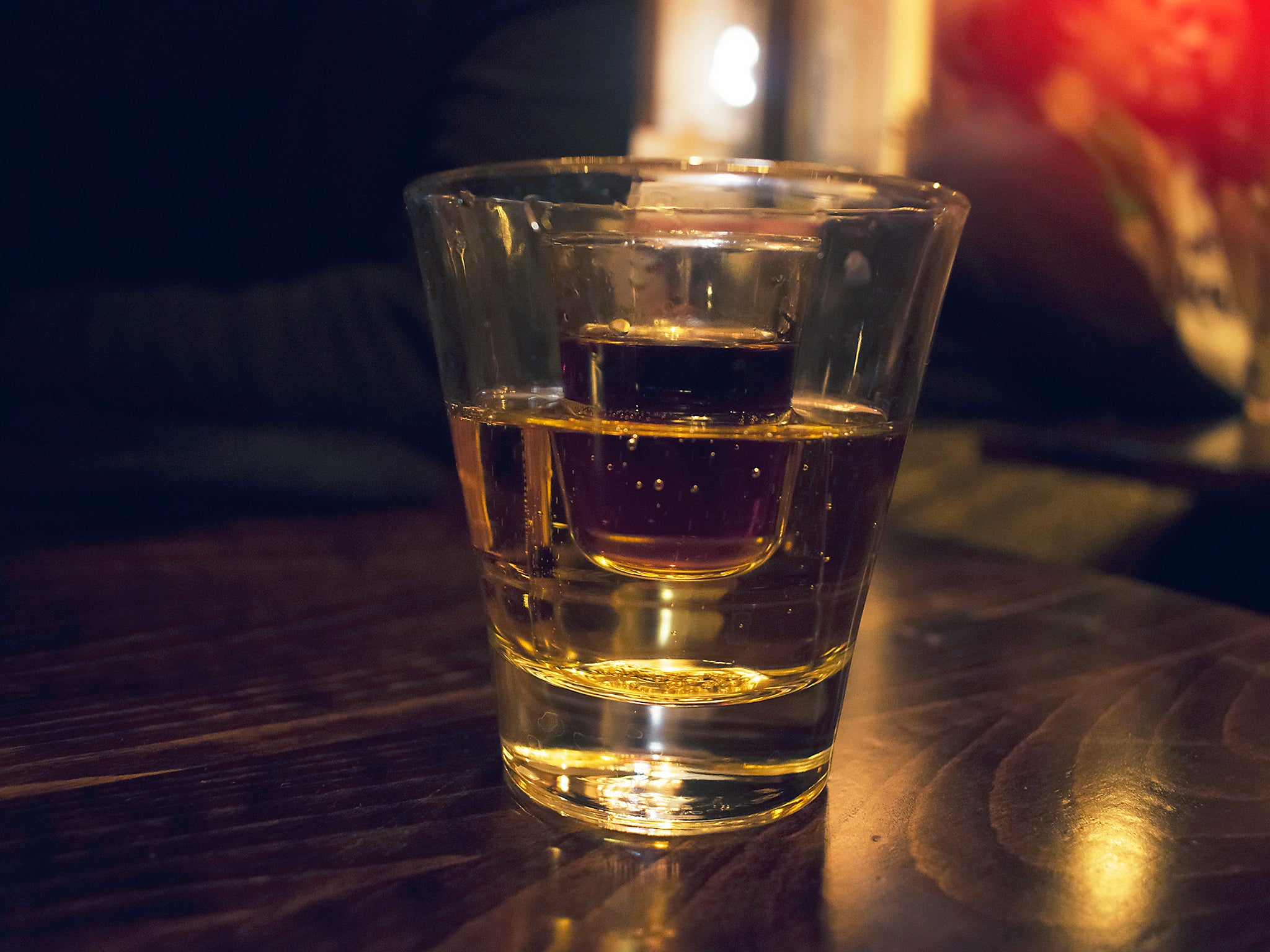Knowing energy drinks are in your alcoholic cocktails will make you think you are more drunk
Despite drinking the same cocktail, the participants who knew they were drinking an energy drink as opposed to an 'exotic cocktail' perceived themselves to be more drunk

Knowing you have added energy drinks to a spirit will make you think you are more drunk, a study has found, perhaps explaining that rapid feeling after a jagerbomb.
According to new research by the University of British Columbia Saunder School of Business, published in the Journal of Consumer Psychology, being told an energy drink has been added to your alcoholic drink can make you feel more drunk, daring and sexually self-confident.
Participants were made up of 154 heterosexual young men, described as “social drinkers, who were each given a cocktail containing vodka, red bull and fruit juice. The labelling of the cocktail either emphasised the presence of the energy drink (‘a vodka-Red Bull cocktail’) or it was described as a ‘vodka cocktail’ or ‘exotic cocktail’ instead.
The men were then asked to complete a series of tasks on a computer to measure their perceived drunkenness, attitudes and behaviours .
The researchers found that those who drank the cocktail aware that it contained an energy drink “significantly increased perceived intoxication, risk-taking and sexual self-confidence”.
“Red bull has long used the slogan ‘Red Bull gives you wings’ but our study shows that this type of advertising can make people think it has intoxicating qualities when it doesn’t,” lead researcher Yann Cornill explained. “When alcohol is mixed with an energy drink and people are aware of it, they feel like they’re more intoxicated simply because the marketing says they should feel that way.”
Previous studies have warned of a danger when it comes to mixing energy drinks and alcohol. In March, researchers found that the combination can increase the risk of injury on a night out as well as leading the person to stay out longer and drink more overall. Previous studies have also suggested a link between the concoction and sexual assault.
Positively, this study found that emphasising the content of an energy drink in the cocktail decreased the participants’ intentions to drink drive.
The researchers suggested that policy makers re-examine the regulation and codes about advertising and labelling of energy drinks and potentially consider restrictions based on their psychological effect as well as physiological.
“Given the study’s findings about the psychological effects of energy-drink marketing, energy drink marketers should be banned from touting the disinhibiting effects of their ingredients,” co-author Pierre Chandon said. “Regulations and codes of conduct should consider the psychological – and not just the physiological – effects of products.”
Join our commenting forum
Join thought-provoking conversations, follow other Independent readers and see their replies
Comments
Bookmark popover
Removed from bookmarks